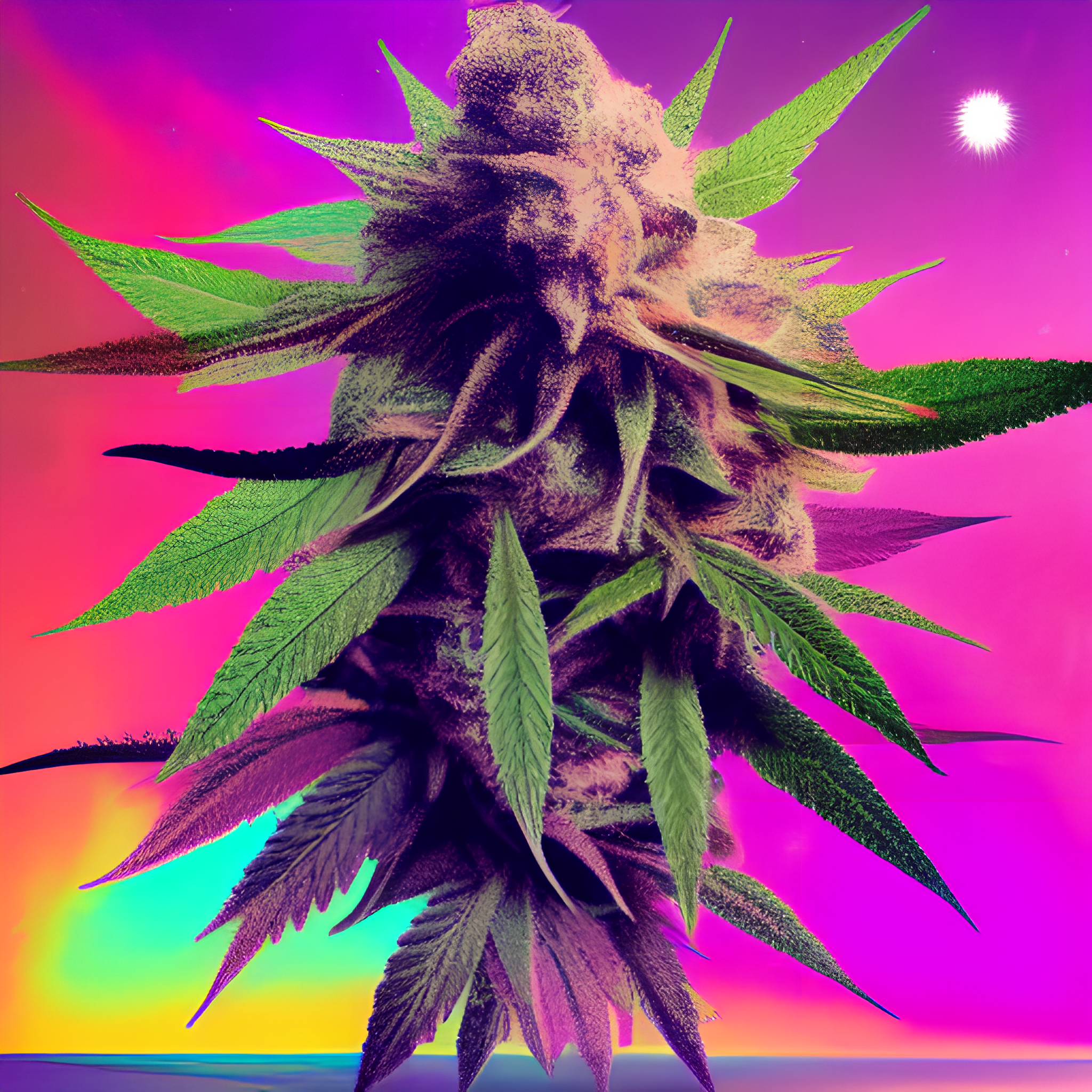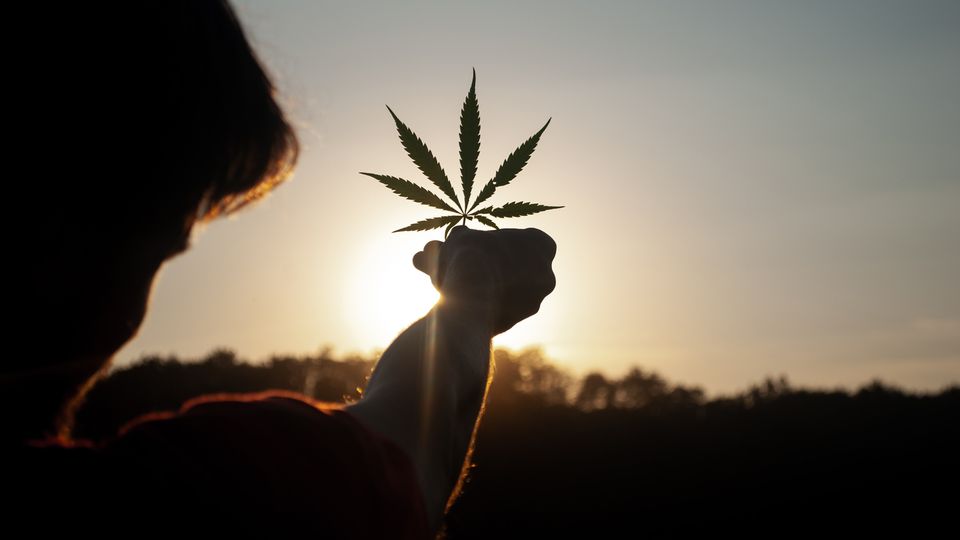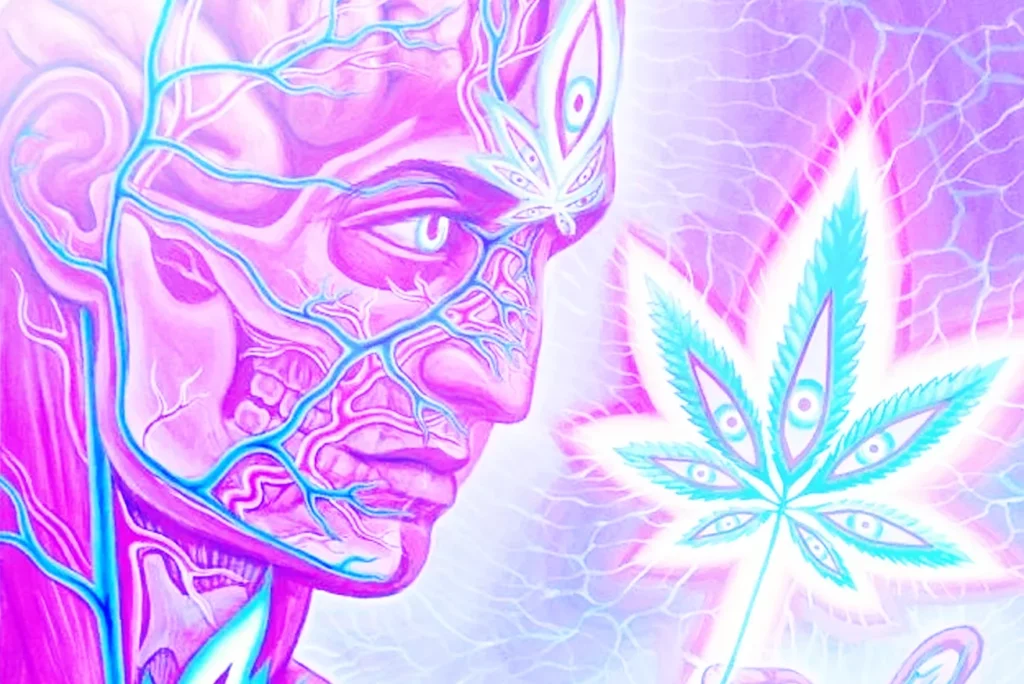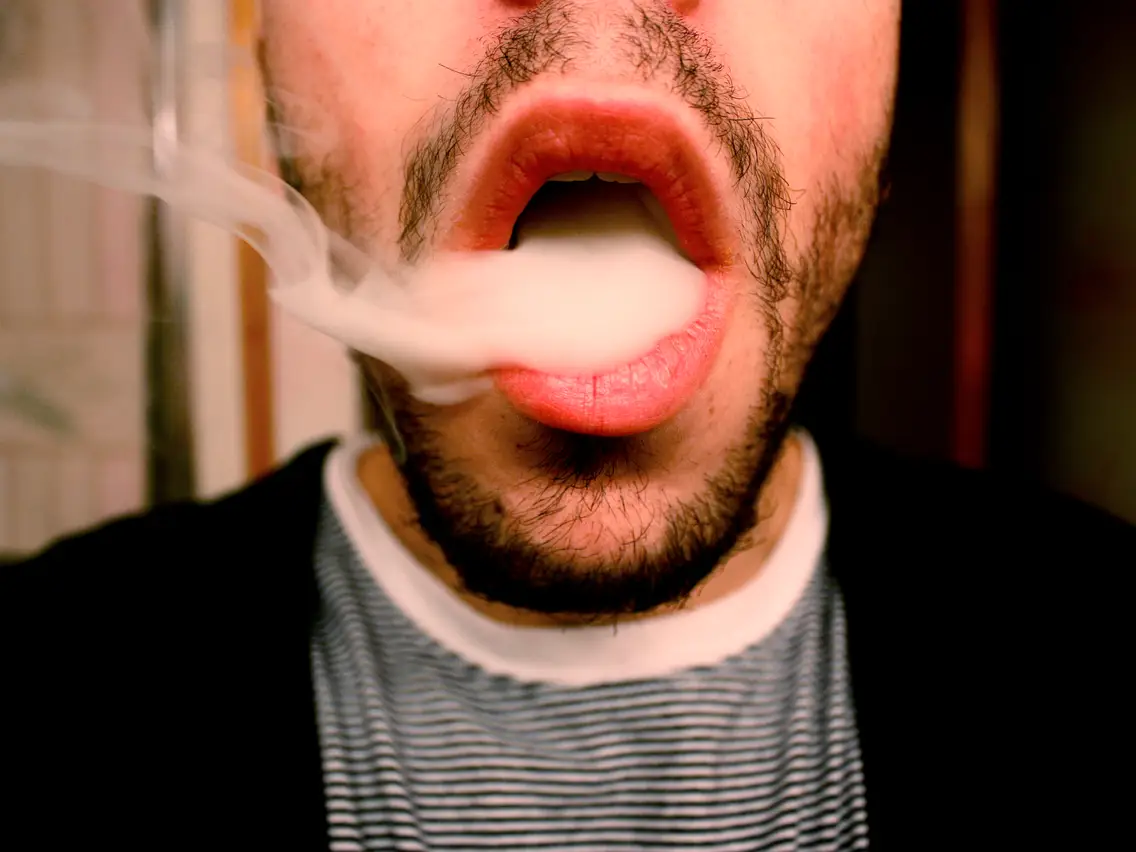Culture
Is Cannabis a Psychedelic?
Introduction
The psychedelic movement has gained significant attention in recent years, with psychedelic-assisted therapies showing promise in treating conditions like depression and PTSD. While substances like MDMA and psilocybin have taken the spotlight, there is growing curiosity about the potential psychedelic effects of cannabis.
This article aims to explore the question: Is cannabis a psychedelic? We explore the existing scientific literature on cannabis and its psychedelic properties, considering the role it could play in psychedelic-assisted therapies.
Defining Psychedelics
Before we dive into the discussion, it’s crucial to understand what makes a substance a psychedelic. From a scientific perspective, psychedelics, also known as hallucinogens, act upon serotonin receptors in the brain, leading to alterations in perception, cognition, and even reality itself. These substances, often referred to as serotonergic psychedelics, include LSD, DMT, mescaline, and psilocybin mushrooms.
However, in everyday cannabis use, we observe altered cognition, euphoria, and even hallucinations, especially with higher doses or edibles. While it may be subjective, there are similarities between cannabis and classic psychedelics that warrant further exploration.
Cannabis: A Controversial Psychedelic

The classification of cannabis as a psychedelic has long been a topic of debate. Some include it in the realm of psychedelics, while others consider it in a category of its own, often used alongside psychedelics but not identical to them.
Cannabis’s effects on thought and mood are well-known, but it doesn’t consistently produce the hallucinogenic experiences associated with substances like LSD or psilocybin mushrooms. However, some users report experiences similar to psychedelic trips, blurring the boundaries between cannabis and classic psychedelics.
Cannabis and Perceptual Changes
Scientific literature provides evidence of cannabis-induced perceptual changes and visual hallucinations. Studies have documented cases of confusion and visual hallucinations in adults after cannabis use, as well as visual disturbances that persisted for months. These experiences resemble the effects commonly associated with classic psychedelics.
Additionally, surveys have shown that a significant percentage of cannabis users experience minor and major perceptual effects, such as intensified colors and distorted shapes.
The Potential for Psychedelic Experiences with Cannabis
While cannabis’s psychedelic effects may not be as consistent as classic psychedelics, there are indications that high doses of THC, the primary psychoactive compound in cannabis, can elicit more intense experiences.
THC has been shown to indirectly activate 5-HT2A receptors, similar to classic psychedelics. However, the varying concentrations of THC and CBD in cannabis products may contribute to the inconsistent psychedelic effects. THC up-regulates 5-HT2A receptors, while CBD seems to have the opposite effect. Further research is needed to determine the effective dose for reliably evoking a psychedelic experience with cannabis.
Cannabis and Spiritual Experiences
Another aspect of psychedelic experiences is the potential for spiritual or religious encounters. Cannabis use has been associated with religious realizations, a better understanding of the universe’s mysteries, ego dissolution, and feelings of closeness to God, nature, or mankind.
These findings align with the spiritual elevation often reported with classic psychedelics. Even individuals without religious beliefs can experience feelings of peace, joy, and a sense of universal understanding when using cannabis or psychedelics.
Cannabis vs. Classic Psychedelics: How They Differ
While cannabis shares some similarities with classic psychedelics, there are distinctive differences between the two. One significant difference is the frequency of use. Classic psychedelic users typically partake a few times a year, seeking religious or transformative experiences. In contrast, cannabis users often consume more frequently, primarily for relaxation, fun, or pain relief.
The longevity of effects also differs, with classic psychedelics providing long-term psychological benefits that can outlast the immediate effects of the drug. The shifts in perception and positive mindset can persist long after a single use.
The Role of Cannabis in Psychedelic-Assisted Therapies
As psychedelic-assisted therapies gain recognition for their potential therapeutic benefits, the question arises: Could cannabis play a similar role? With cannabis’s legal accessibility in many states compared to classic psychedelics.
Some wonder if it could provide a more accessible route for those unable to utilize traditional psychedelics. However, research in this area is still in its infancy, and exploring the therapeutic potential of high-dose.
Psychedelic experiences with cannabis requires randomized controlled trials in psychedelic-supportive settings. While cannabis has primarily been studied for medical benefits at low doses, investigating its occasional, high-dose use in a therapeutic context may yield valuable insights.
Exploring Different Cannabis Strains and Products
Not all cannabis strains are created equal when it comes to psychedelic effects. The entourage effect, which refers to the combined influence of various cannabinoids and terpenes. This may play a role in enhancing psychedelic experiences with cannabis.
Strains with specific terpene and cannabinoid profiles, such as Durban Poison, Wedding Cake, and Haze varieties, have gained a reputation for their psychedelic-like effects. Additionally, the CBD-THC ratio in cannabis products can influence the psychoactive effects. While conventional wisdom suggests that CBD counteracts THC’s psychoactivity, recent research suggests that lower levels of CBD may enhance the psychedelic effects of THC.
Maximizing Psychedelic Effects: The Role of Edibles
To maximize the psychedelic effects of cannabis, many users turn to edibles. When consumed, THC undergoes a metabolic process that produces more potent and longer-lasting effects compared to smoking or vaping.
Edibles can provide a different, more powerful high that can lead to hallucinations and an extended duration of psychoactive effects. However, it’s essential to exercise caution with edibles, as the effects can be intense, and dosing should be approached with care.
The Future of Cannabis as a Psychedelic
As attitudes towards psychedelics and cannabis continue to evolve, so does the research surrounding their potential benefits. While cannabis might not fit neatly into the category of classic psychedelics.
However, evidence suggests that it can produce psychedelic-like effects, particularly with high doses of THC. Further studies are needed to explore the therapeutic potential of cannabis as a psychedelic and its role in psychedelic-assisted therapies. By understanding the nuances of cannabis and its potential for psychedelic experiences. We continue to unlock the full spectrum of benefits that these substances may offer.

Conclusion
In conclusion, the question of whether cannabis is a psychedelic remains open for exploration. While it may not consistently produce hallucinogenic experiences like classic psychedelics. Cannabis has linked users to perceptual changes, spiritual elevation, and even experiences resembling psychedelia. The varying concentrations of THC and CBD in cannabis products contribute to the inconsistent effects.
As research continues, we may gain a better understanding of the therapeutic potential of cannabis in psychedelic-assisted therapies and the unique experiences it can offer. Whether cannabis can provide a more accessible alternative to classic psychedelics is a question that future studies can address.


